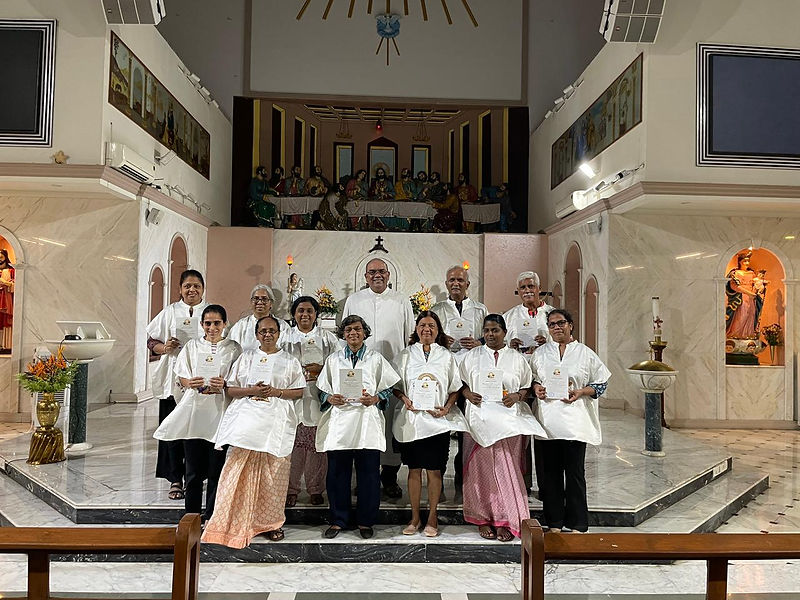extraordinary ministers
of holy communion

On January 29, 1973, the instruction “Immensae caritatis” was issued by Pope Paul VI. With this instruction, the diocesan bishop was given permission to designate lay men and women to distribute the Eucharist as Extraordinary Ministers of Holy Communion. It stated that “…this faculty may be used whenever there is no priest, deacon or instituted acolyte present, or when the ordinary minister is prevented from administering Communion because of other pastoral obligations, ill health, or advanced age, or when the number of the faithful is so great that, unless Extraordinary Ministers assist in the distribution, the celebration would be unduly prolonged.”
Extraordinary Ministers for the distribution of Holy Communion are properly formed, instructed and commissioned lay persons.
The EMHC becomes a vital link between the parish community and the members who are sick or homebound. The visit to the sick and homebound after Sunday Mass, to link between the Parish Liturgical celebration and the parishioner is maintained. The EMHCs do not replace the ministry of the priest to the people, but rather extend and expand it so that all will have more regular contact with Christ in Holy Communion.
God has blessed our parish with Extraordinary Ministers of Holy Communion. They serve as Ambassadors of Christ (2 Corinthians 5:20) by taking the Body of our Lord to the sick every Weekend. They are instruments of evangelization by their actions of love, kindness, and Service to the sick.
-
Priest in Charge: Fr. Savio de Sales
-
Frequency:
The primary duties of the Extraordinary Ministers of Holy Communion are to distribute the Body of Christ to the congregation during Mass and to take Holy Communion to home-bound parishioners. They play a crucial role in ensuring that the Eucharist is shared with reverence and care. They not only assist in the distribution of Holy Communion during Mass but also extend their ministry to the home-bound members of the parish, ensuring that they too can partake in the sacrament of the Eucharist.
